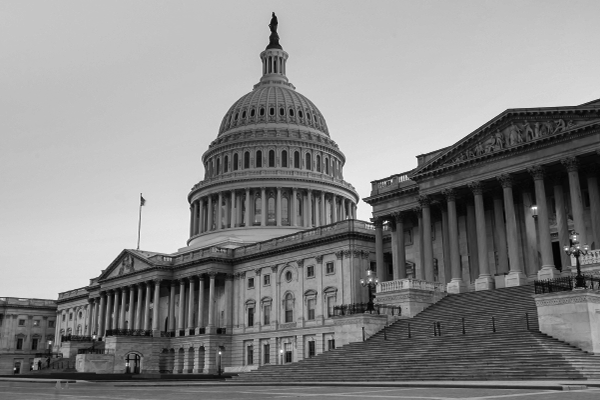Four Things Congress Should Include in the Budget

The annual budget process continues to inch closer and closer to the (intended) April 15th deadline, when a budget resolution is supposed to be passed by both Chambers. While nonbinding, the budget resolution does set topline numbers for Appropriations Committees and kicks off the appropriations process in earnest. The resolution also provides an important forum to stake out policy goals and priorities.
The House Budget Committee recently passed its version of a resolution, setting up debate in the full House. The proposed resolution makes a good first effort in promoting affordable, reliable energy. However, the House can and should do more to address important energy issues and protect taxpayers from aggressive federal overreach.
Here are four things the budget should include:
Block the Administration’s Clean Power Plan – The centerpiece of President Obama’s energy and environment agenda – the Environmental Protection Agency’s carbon rule – will shutter roughly 47 GW of reliable coal energy, increase the cost of electricity across the nation, and cost up to $39 billion per year. The benefits of this rule are miniscule; according to the EPA’s models we can anticipate a 0.019° Celsius change in global temperatures and 0.15 cm change in sea level by 2100.
In February, the Supreme Court issued a stay of the rule. Under the stay, the EPA can do nothing to assist states in complying with the rule. Thus, states have begun stopping work on implementation plans. The stay not only pushes back all initial compliance deadlines, but also postpones any legal resolution of the case until at least mid-2017, but likely longer.
Since the EPA is barred from working towards compliance on the carbon rule under the stay, the EPA should receive no funds for implementation or further development of the carbon rule. The House Budget Committee draft resolution addresses the rule and its significant negative impacts but it must go farther by codifying the logical implications of the Supreme Court’s stay and the rule’s harmful impact on all Americans. The Budget Resolution should fund the agency at a lower level and explicitly prohibit use of agency resources until judicial review is complete.
Prohibit taxpayer dollars from being sent to the Green Climate Fund and Reduce the Economic Support Fund – Amid much fanfare, diplomats agreed on the Paris climate accord in December. Key to this agreement is the Green Climate Fund (GCF). The GCF has been derided as nothing more than a slush fund and has raised questions as to its accountability and transparency mechanisms.
The year-end Omnibus funding legislation failed to adequately prevent funds from being diverted to the GCF. While the Omnibus did not directly appropriate for the GCF, the legislation did not provide enough of a safeguard against agency reprogramming. The State Department did exactly that, funneling $500 million from the Economic Support Fund account, circumventing Congressional approval.
Congress cannot be so naïve to think that the State Department will not reprogram funds again, if necessary. Any budget put forward by Congress must explicitly prohibit any funds from being sent to the GCF.
Furthermore, Congress should exercise its power of the purse and reduce the Economic Support Fund by $500 million. If the Obama administration can take $500 million from the fund, then it appears to be overfunded by at least $500 million.
Fully Repeal the RFS – The Renewable Fuel Standard mandates refiners blend increasing amounts of biofuels into gasoline. Since its inception in 2005, the RFS has proved to be a costly, burdensome, and ultimately ineffective program in large measure because Congress tried to mandate technology into existence. The vast majority of the RFS is met via corn ethanol, yet the EPA also mandates the blending of expensive and commercially unviable “advanced” biofuels, such as cellulosic ethanol. This is where the mandate can do the most harm.
Corn ethanol has proved to be an effective and inexpensive fuel octane, and will survive on the market without the RFS. On the other hand, advanced biofuels are not only expensive and scarce, but will be mandated in higher volumes under the RFS. This not only hurts consumers, but also ends up undercutting corn farmers who produce ethanol.
The only solution is to fully repeal the RFS. Half-measures that repeal only the corn portion do not go far enough and actually makes the RFS worse. The House Budget should take a cue from the Republican Study Committee’s budget and include a provision fully repealing the RFS.
Open Federal Lands for Natural Resources Development — Over the last eight years, natural resources development on federal lands has been stymied at nearly every turn. Just this year alone, the Administration has imposed a moratorium on new coal leases (which will undoubtedly include oil and natural gas in the near future) and eliminated oil and gas leases in the Atlantic from their next 5-Year Offshore Plan. Today less than two percent of offshore areas are even leased for energy production. This “keep it in the ground” mantra only serves to deprive Americans of bountiful energy resources.
The House Budget Resolution should note the vast resources that bless our nation and the enormous benefits that come from unlocking them. Chairman Ryan included this in his FY 2014 budget, noting the $14.4 trillion in additional economic activity from opening federal lands to oil and natural gas development. Today, the benefits are even greater: $20.7 trillion in increased economic output over the next 37 years, 552,000 new jobs annually over the next seven years, and $3.9 trillion in federal revenues over the next 37 years, all without raising or creating new taxes.
Conclusion
The goal of the House Budget Resolution should be to put American on a path to economic freedom and fiscal responsibility. Sensible energy policies can play a large part in achieving these goals. Allowing affordable and reliable energy ensures economic growth, and natural resources development can generate significant revenues without increasing the tax burden. Including such policies in the Budget Resolution can help put America on a path towards prosperity.



